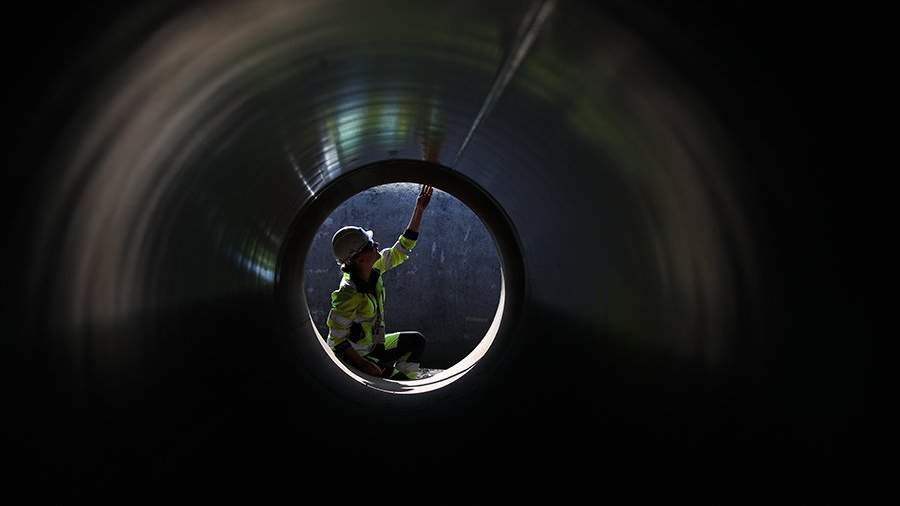
Germany's economy pays a high price for the rejection of Russian pipeline gas
By Rhod Mackenzie
For the first two decades of the 21st century, Germany was in its economic ascendency. Its economy boomed,it was one success after another. It gained dominace in world markets in areas such as high-tech,luxury cars and precision engineering and sold so much of its output that its exports accounted for half of the entire German economy. Unployement was low,skilled jobs plentiful and the government coffers were filled with the revenues of that success at a time when most European countries were deeply in debt.The evidence of the German 'economic miracle' written about in many books whose authors urged other to learn lessons in ecomomic policies from the Germans.
Currently we can see that all that success is now a thing of the past. The German economy has been the worst performing economy in the developed world this year. Suffice it to say that by the end of 2023, Germany will be the only G7 member with an economy that is in decline. Moreover, it is not only organisations including the "US orientated" IMF that has issued a disappointing forecast, but also the European Union.
This dramatic change in its fortunes was a direct consequence of the decision to reject the 'cheap and reliable supplies' of Russian pipeline gas last year. This, fundamental mistake, was made by the German government, which surprisingly quickly caused a catastrophe for the German economy. The rejection of Russian gas supplies was so devastating that the energy-intensive sectors of the German economy may never recover.
The criticisism of the German authorities abounds and the fear, they're all saying, is the deindustrialisation of the country that two or three years ago was considered the industrial workshop of Europe. Christian Kullmann, head of the major German chemical company Evonik Industries AG, said that high energy prices and government inaction will drive any new investment by German companies into factories and plants to countries with cheaper energy costs. In his view, the loss of Russian pipeline gas was "an extremely painful blow to the heart of the business model of German industry". In terms of government inaction and errors, Kullman believes that the rapid transition to renewable energy being mplemented by Olaf Scholz's cabinet has been a huge mistake. He also believes that the decision to go green is a political and not economic one.
The high prices for energy prices are the result of the mistakes made at a political level. For example, despite this year's lowering of prices, the cost to industry for gas is still around twice what it was in 2021. Another important factor is the occurance of the "external circumstances", which included the sharp slowdown in China,which is one of Germany's most important trading partners.
The so called ' allies' on the other side of the Atlantic are clearly not that friendly. The introduction of the American inflation reduction act, with its generous loans and subsidies for renewable energy companies, is causing envy among German businessmen giving in to a strong desire to move to the United States, as more and more companies are doing.
Evonik, for example, is looking at plans to build a $220 million pharmaceutical plant to produce lipids, the main ingredient in vaccines, not in Germany but in America. Kullman says that while German officials were not interested in his proposal, the Americans will offer his company up to $150 million in subsidies to build it there.
All these problems have exposed the cracks and flaws in the foundations of the German economy that went unnoticed during the years of economic triumph and success. These include the low level of digitalisation in both government and industry, the slowness in approving renewable energy projects, and much more. It turns out, for example, that much of the money the German government was awash with until recently came from investment into transport infrastructure and high-speed internet in rural areas. Of course, hindsight is 20/20, but the decision to close all nuclear power plants in 2011, which played a major role in last year's energy crisis, now looks like an major mistake. Add to that a rapidly ageing population and a growing shortage of skilled workers.
In summary things do not look good for the Germans
